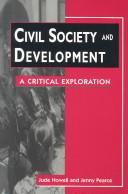| Listing 1 - 10 of 2002 | << page >> |
Sort by
|

ISBN: 9781565180840 1565180844 Year: 1997 Publisher: Washington (D.C.): Council for research in values and philosophy,
Abstract | Keywords | Export | Availability | Bookmark
 Loading...
Loading...Choose an application
- Reference Manager
- EndNote
- RefWorks (Direct export to RefWorks)
Book
Year: 2023 Publisher: Washington, D.C. : World Bank,
Abstract | Keywords | Export | Availability | Bookmark
 Loading...
Loading...Choose an application
- Reference Manager
- EndNote
- RefWorks (Direct export to RefWorks)
Efforts to promote social cohesion through development projects have had to contend with multiple definitions of the term, a lack of clarity on diagnostic and measurement approaches, and contradictory evidence on the effectiveness of different types of interventions meant to repair or reinforce it. This paper first offers a definition of social cohesion that highlights three sets of relations: those connecting individuals within a community (bonding), those connecting individuals across distinct communities (bridging), and those connecting individuals to people and structures in a position of power (linking). Together, these three dimensions constitute a framework for diagnosing gaps in social cohesion, assessing trends, and prioritizing interventions and investments. The paper also outlines strategies for diagnosing gaps in social cohesion and tracking trends along these three dimensions, providing concrete recommendations for teams designing social cohesion measurement strategies. Finally, the paper reviews the evidence on what works to reinforce cohesion within community, to build trust across groups, and to strengthen citizen-state relations. This review highlights different types of intervention that can help promote social cohesion, while suggesting that their effectiveness is conditional on sound diagnoses and rigorous implementation processes.
Book
ISBN: 1412365856 Year: 2008 Publisher: Chicoutimi : J.-M. Tremblay,
Abstract | Keywords | Export | Availability | Bookmark
 Loading...
Loading...Choose an application
- Reference Manager
- EndNote
- RefWorks (Direct export to RefWorks)

ISBN: 158826095X Year: 2001 Publisher: Boulder : Lynne Rienner Publishers,
Abstract | Keywords | Export | Availability | Bookmark
 Loading...
Loading...Choose an application
- Reference Manager
- EndNote
- RefWorks (Direct export to RefWorks)
Book
ISBN: 9264312366 9264312358 Year: 2019 Publisher: Paris : OECD Publishing,
Abstract | Keywords | Export | Availability | Bookmark
 Loading...
Loading...Choose an application
- Reference Manager
- EndNote
- RefWorks (Direct export to RefWorks)
Le Comité d'aide au développement (CAD) de l'OCDE procède à des examens périodiques des efforts individuels de coopération pour le développement des membres du CAD. Les politiques et les programmes de chacun des membres font l'objet d'un examen critique une fois tous les cinq ans. Les examens par les pairs évaluent la performance du membre ...
Book
ISBN: 1443855200 9781443855204 1306309220 9781306309226 1443852341 9781443852340 Year: 2013 Publisher: Newcastle upon Tyne : Cambridge Scholars Publishing,
Abstract | Keywords | Export | Availability | Bookmark
 Loading...
Loading...Choose an application
- Reference Manager
- EndNote
- RefWorks (Direct export to RefWorks)
This book examines the efforts of one particular civil society organization, the human rights ministry of a Catholic parish located in the Kibera slum in Nairobi, to determine the extent to which it was able to promote democracy, human rights and the rule of law. It concludes from an analysis of the social, economic and political environment of Kibera as well as church structures, that parishioners demonstrated an observable improvement in their democratic values and behavior at a localized l...
Book
ISBN: 8672080912 Year: 2004 Publisher: Belgrade, Serbia : Helsinški odbor za ljudska prava u Srbiji,
Abstract | Keywords | Export | Availability | Bookmark
 Loading...
Loading...Choose an application
- Reference Manager
- EndNote
- RefWorks (Direct export to RefWorks)
Ubistvo premijera Zorana Đinđića obeležilo je ne samo celu 2003. godinu, već će, sudeći po razvoju situacije u Srbiji, predstavljati istorijsko raskršće za Srbiju: za ili protiv Evrope. Ubistvom reformskog premijera, ne samo da su zaustavljene reforme i prekinuta saradnja sa Haškim tribunalom, već je otvoren put radikalizaciji Srbije, što su potvrdili i vanredni parlamentarni izbori. Nesposobnost i nespremnost DOS da napravi diskontinuitet sa Miloševićevim politikom, posebno ratnom, otvorilo je put restauraciji regime anciene i ubedljivoj pobedi njegovih predstavnika na vanrednim parlamentarnim izborima. Od ubistva premijera Zorana Đinđića do parlamentarnih izbora ostvareni su skoro u celosti ciljevi puzećeg puča, uprkos pokušaju međunarodne zajednice da održi kurs reformi kroz, pre svega, prijem SCG u članstvo Saveta Evrope već tokom vanrednog stanja. Sve aktivnosti ujedinjenih snaga (cela opozicija, većina nevladinih organizacija i medija) bile su usmerene na obaranje vlade i njenu kompromitaciju. Na izborima su pobedile one snage koje su zbog rešavanja "nacionalnog pitanja" odlagale tranziciju i demokratizaciju društva. Zbog istrošenosti i poraza nacionalnog projekta, kao i zbog sprečavanja stvaranja alternative, konzervativna srpska elita našla je novi oslonac populističke politike u produkciji afera i skandala. Njihov cilj nisu bile ekonomske reforme već diskvalifikacija protivnika, što je potpuno devalviralo stvarnu borbu protiv korupcije, kao i same reforme. Pobeda SRS i DSS garancija je da će se kurs nastaviti, što se prelama preko debate o novom ustavu, rešavanju kosovskog i vojvođanskog pitanja, saradnji sa Haškim tribunalom, odnosu prema državnoj zajednici i odbijanju suočavanja sa neposrednom prošlošću. Radikalizacija politike u Beogradu dodatno destabilizije, ne samo zemlju, već i ceo region.
Book
ISBN: 8486791065 9788486791063 Year: 1988 Publisher: [Madrid]: Fundación Friedrich Ebert,
Abstract | Keywords | Export | Availability | Bookmark
 Loading...
Loading...Choose an application
- Reference Manager
- EndNote
- RefWorks (Direct export to RefWorks)
Book
ISBN: 9780199330140 019933014X Year: 2013 Publisher: Oxford: Oxford university press,
Abstract | Keywords | Export | Availability | Bookmark
 Loading...
Loading...Choose an application
- Reference Manager
- EndNote
- RefWorks (Direct export to RefWorks)

ISBN: 0813314828 Year: 1992 Publisher: Boulder (Colo.) : Westview press,
Abstract | Keywords | Export | Availability | Bookmark
 Loading...
Loading...Choose an application
- Reference Manager
- EndNote
- RefWorks (Direct export to RefWorks)
| Listing 1 - 10 of 2002 | << page >> |
Sort by
|

 Search
Search Feedback
Feedback About UniCat
About UniCat  Help
Help News
News